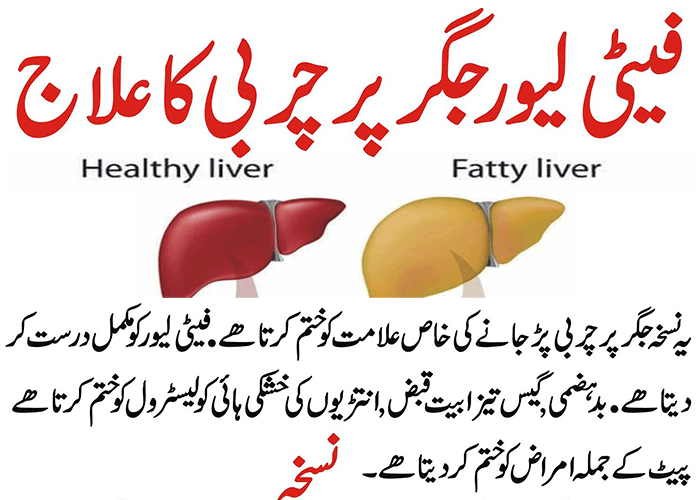
In our busy lives, our health can sometimes face challenges, and one common concern is a fatty liver. This occurs when too much fat builds up in the liver, affecting its normal functioning. This article explores the reasons behind fatty liver, its signs, and uncomplicated home remedies for treatment.
Fatty Liver Causes: It’s essential to know why fatty liver happens. A significant cause is an unhealthy diet with too much fatty and sugary food. Other contributors include obesity, insulin issues, and metabolic concerns. Genes, rapid weight loss, and certain medications can also play a part.
Fatty Liver? Causes, Symptoms, Treatment

Fatty liver can increase the risk of certain cancers: Research suggests a link between NAFLD and an increased risk of developing liver cancer, colorectal cancer, and esophageal cancer. While the exact mechanisms are still being studied, it’s believed chronic inflammation and metabolic changes associated with fatty liver may play a role.

Fatty liver types:
Non-alcoholic fatty liver disease (NAFLD): This is the most common type, not directly linked to excessive al-coh-ol consumption. It’s often associated with factors like obesity, insulin resistance, and high cholesterol.
Alcoholic fatty liver disease (AFLD): Excessive al-co-hol consumption damages the liver, leading to fat buildup and inflammation.
Signs and symptoms:
Detecting fatty liver early can be tricky because it often shows minimal or no signs. As it progresses, people may feel tired, experience belly discomfort, and unintentionally lose weight. Pain in the upper right belly may indicate liver inflammation. Regular check-ups and paying attention to these small signs are crucial for early detection.
Simple Home Remedies:
To manage fatty liver, making lifestyle changes is crucial. These straightforward remedies can help:
1. Balanced Eating:
Opt for more fruits, veggies, and whole grains. Cut back on fatty, sugary, and processed foods. Choose lean proteins and foods rich in antioxidants to support your liver.
2. Move More:
Engage in regular exercise with activities like walking, jogging, or swimming. Aim for at least 30 minutes most days to assist with weight loss and improve insulin function.
3. Drink Water:
Stay hydrated by consuming enough water, herbal teas, and fresh juices. This helps flush out toxins and maintains optimal liver function.
4. Limit Al-co-hol:
If you consume al-co-hol, do so moderately. It’s advisable to avoid alcohol if you have fatty liver to prevent worsening the condition.
5. Try Herbal Help:
Some herbs like milk thistle and dandelion may offer support to your liver. However, consult with a healthcare professional before trying herbal supplements.
6. Maintain a Healthy Weight:
Aim for a healthy weight through gradual changes in diet and exercise. Quick weight loss can exacerbate fatty liver.
FAQs About Fatty Liver
Can fatty liver be reversed?
Yes, especially in the early stages. Eating better, exercising, and maintaining a healthy weight can help reverse fatty liver.
What role does diet play in managing fatty liver?
Eating a balanced diet with fruits, veggies, whole grains, and lean proteins is crucial. Avoiding too much saturated fats, sugars, and processed foods is recommended.
Is exercise beneficial for fatty liver?
Yes, regular exercise helps with weight loss, improves insulin sensitivity, and supports liver health. Aim for at least 30 minutes most days.
Are there home remedies for fatty liver?
Yes, home remedies include a balanced diet, regular exercise, staying hydrated, limiting alcohol, and considering herbal supplements (consult a healthcare professional first).
Can fatty liver lead to severe conditions?
If not treated, fatty liver can lead to more severe issues like cirrhosis and liver failure. Early detection and lifestyle changes are vital.
When should I talk to a doctor about fatty liver?
If you feel tired, have belly pain, or are losing weight without reason, or if you have obesity or diabetes, talk to a doctor for proper diagnosis and guidance.
Wrapping Up:
Understanding why and how fatty liver happens empowers individuals to take control. Small, consistent changes in daily life, such as making healthier food choices and increasing physical activity, can make a significant impact. Keep at it, and consult with a healthcare professional for personalized advice.
Disclaimer: This article is for informational purposes only and should not be interpreted as medical advice. Always consult your doctor for diagnosis and treatment of any medical condition.






